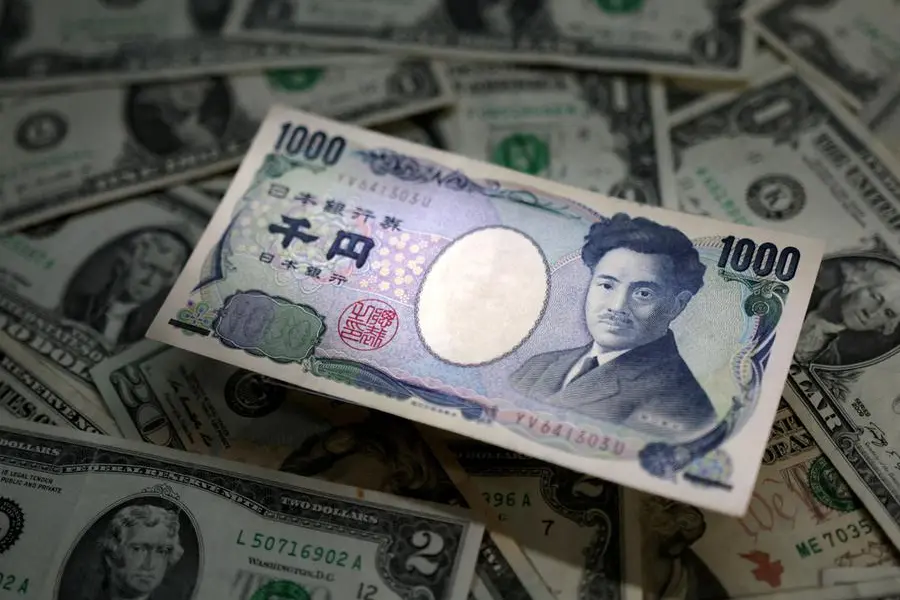PHOTO
LONDON - The yen hit choppy trading on Thursday after a sharp drop the day before in a volatile week in which investors have had to digest the unwinding of popular carry trades and how Japanese monetary policy might evolve.
The yen swung between losses of 0.14% and a gain of 0.85%, having slid 1.6% on Wednesday, after the Bank of Japan's Deputy Governor Shinichi Uchida played down the chance of a near-term hike in interest rates that would typically boost the currency.
The yen started the week by scaling a seven-month high of 141.675 per dollar, a far cry from the 38-year lows where it traded in early July, after soft U.S. jobs data last week stoked recession worries and roiled investors.
A surprise rate hike from the BOJ last week also forced investors to bail out of carry trades, in which they borrow the yen at low rates to invest in dollar-priced assets for higher returns. This unwinding gave the yen a boost.
A summary of opinions voiced at the BOJ's July policy meeting showed on Thursday that some board members cited a need to keep raising interest rates, with one saying they should eventually be increased to at least around 1%.
The contrasting opinions from the summary and Uchida on whether the BOJ will continue to raise rates, or pause as a result of market volatility, underscores the delicate task facing the central bank and will likely keep investors skittish.
Some analysts believe this unwinding in the carry trade may have further to run, and is possibly only halfway there, which could add to volatility.
Even if the Fed did deliver a steep rate cut and the BOJ another increase, there would still be an incentive to use the yen to fund other trades.
"There could be new yen shorts. In the same way that people were bargain-hunting in the S&P on Tuesday, they were very likely people bargain-hunting in dollar/yen," Rabobank strategist Jane Foley said.
"There will be people out there who don’t see a reason to expect it to unwind further and that’s what makes a market."
Indeed, the options market shows demand for protection against big price swings in the yen over the next month has reached its highest since early 2023 this week.
The Swiss franc, another currency that was used to fund carry trades and that benefitted from the unwinding momentum earlier this week, was up 0.3% at 0.8589 per dollar, after dropping more than 1% on Wednesday.
DEFENSIVE DOLLAR
The sharp moves in the yen have pushed the dollar index , which measures the U.S. currency against six others including the yen, down 0.14% to 102.97, near Monday's seven-month low of 102.15.
The euro rose 0.16% to $1.094075, while sterling rose 0.1% to $1.27025, near the one-month low it touched on Tuesday.
Traders expect the Fed to cut rates by 50 basis points at its next meeting in September as the economy slows, but they are also pricing in a 26.5% chance of a smaller 25-bp reduction, according to the CME Group's FedWatch Tool.
On Monday, they had at one point fully priced in a 50-bps cut and had even started pricing in the possibility of an emergency rate reduction before the September meeting, though those odds have eased since then, as markets have stabilised.
Investor focus will now be on the U.S. consumer price inflation report for July due next week, as well as comments by Fed Chair Jerome Powell at the central bank's Jackson Hole Economic Policy Symposium on Aug. 22-24.
"Investors need to brace for a bumpy ride," Vasu Menon, managing director of investment strategy at OCBC, said.
The Australian dollar rose 0.56% to $0.6555, while the New Zealand dollar was steady at $0.5999.
(Reporting by Ankur Banerjee in Singapore; Editing by Shri Navaratnam, Michael Perry and Ana Nicolaci da Costa)





















